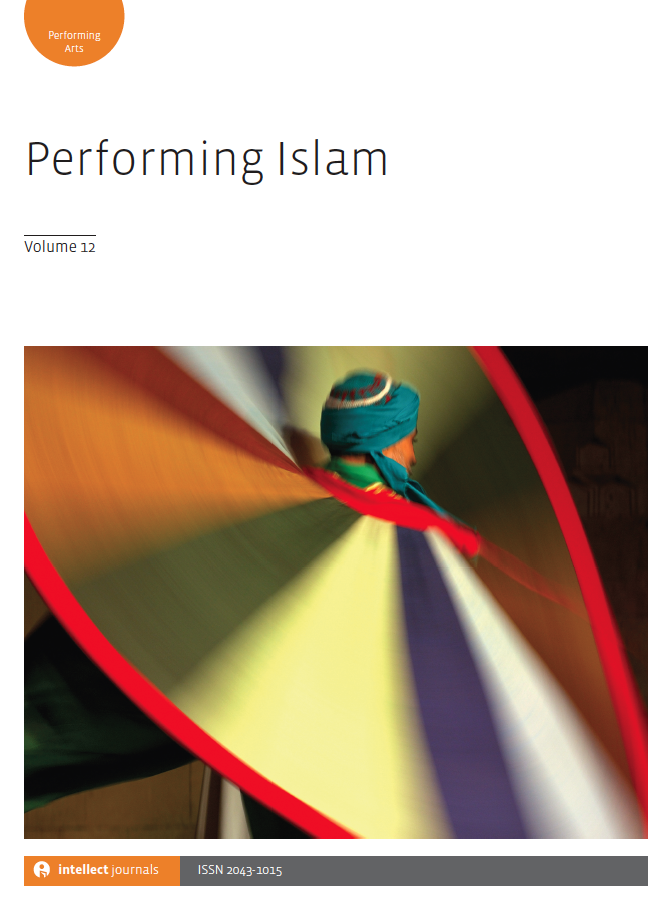- Home
- A-Z Publications
- Performing Islam
- Previous Issues
- Volume 11, Issue 1, 2022
Performing Islam - Volume 11, Issue 1, 2022
Volume 11, Issue 1, 2022
- In Memory
-
- Articles
-
-
-
Storytelling an eco-Islamic future/past: Oral tradition(s), environmentalism and personal responsibility in the Omani public sphere
More LessDuring the global COVID-19 pandemic, the Omani government relied heavily on circulating information and entertainment through multiple forms of social media to keep citizens informed and to promote social distancing. This study explores the 2021 Ramadan Instagram campaign created by Be’ah, the Oman Environmental Services Holding Company, which blended performance genres and Omani traditional storytelling. This case study examines ‘multiplex’ hybrid styles of verbal art that mirrored governmental policy and practice across social media and created a forum where citizens discussed identity, national heritage and what it means to be eco-conscious. A central question in this research concerns the possibilities for social media as a space to communicate, preserve and archive local linguistic diversity and vernacular performative genres.
-
-
-
-
Muslims and Islam in contemporary British theatre and the image of the ‘British Muslim Self’ in Guleraana Mir’s Coconut
More LessDespite their deep-seated presence in Britain, Muslims have been mostly excluded from theatre and popular entertainment. Sociopolitical restrictions have had an impact on the development of Muslim playwriting and it has taken longer than expected for Muslims to find their place within British theatre. Due to the expanding presence of Muslims in British and especially London theatres, the early twenty-first century has become a watershed for British Muslims. This article aims to show how British Muslims describe and represent their cultural, social and religious identities in theatrical works in twenty-first century Britain. Through Guleraana Mir’s play Coconut (2018) – an example of British Muslim playwriting and representation – the representation of the relationship between Islam and Britishness will be examined. This article falls in the wider context of Islamic performances and theatre practices of the twenty-first-century Britain.
-
-
-
On the history of the university theatre: A reading in the theatrical movement of King Saud University in the period from 1974 to 2000
More LessKing Saud University was founded in 1957 as the first university in Saudi Arabia. It was the leading university in presenting theatrical activities and its theatre movement has influenced the landscape of Saudi theatre since 1974–75. The history of theatre in this university has not been explored and investigated very well. This study, therefore, attempts to provide a reading on the history of the theatrical movement at King Saud University, seeking to shed light on various aspects of the characteristics of the university’s theatrical movement and its organizational style. Due to the scarcity of research sources on the subject, the study was based mainly on reports that were written about theatrical activity and kept in the archives of the university. The scope of this study was limited to the university theatre course in only a quarter of a century from 1975 to 2000.
-
Most Read This Month


